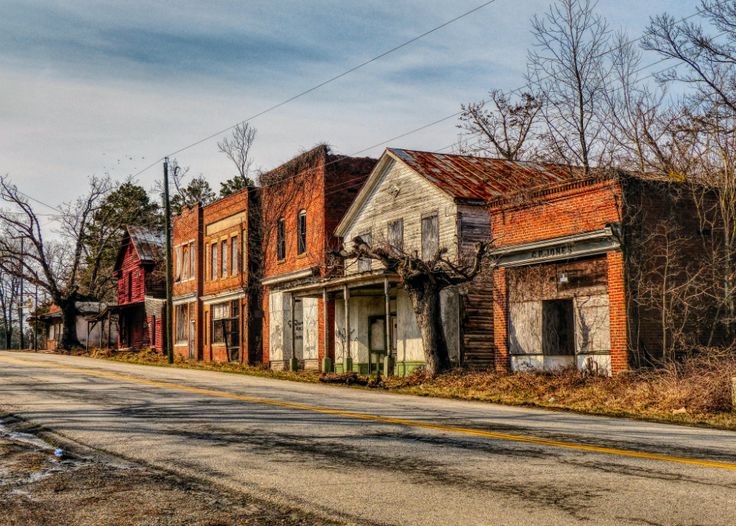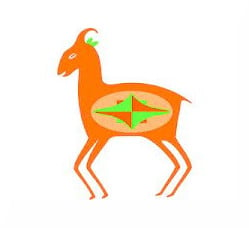As a non-American, I’m very confused by this. If it’s a town, it’s not rural by definition. Because, you-know, it’s urban.
Also, could we get a definition of town vs small town. Do you not have the concept of a village? (Village in the UK would be a settlement with a population of a couple of thousand, with usually a pub, local shop, maybe a post office and primary school if you’re lucky).
American’s rarely use the word “village” - a “town” can be anything from a few thousand people down to almost empty. It’s very subjective - some places that make a proud point of calling themselves “the city of …” are IMO small towns at best. Rural in America means surrounded by a fair amount of countryside, be it farmland or nature. I think most Americans loosely associate “urban” with closely packed tallish buildings,maybe 5-7 stories or more, and mostly wouldn’t agree with you that a “town” is urban by definition. In common speech there’s no clear threshold between large town and small city.
The numbers are pretty funky depending on who you ask. City nerd on YouTube has a nice video on it how people view themselves as rural/urban and what city planners think of it.
You have a lot of people that identify as rural even though they live in exurbs (town adjacent to city) and a lot of people that live in remote areas identify as urban people.
I’d personally say that people that live in a urban/metro area are not rural. People who live on a farm 50km from the next population center of 1000 people is definitely rural. Everything between depends on a lot of factors like how big is the village, what is the village close to etc.
It doesn’t have cows in it, but you can easily walk to where the cows are.
The town my wife grew up in has 1 traffic light, and it’s of the blinking yellow variety.
Rural town.
Anything with less than 50k is rural
Nobody that actually lives rural would agree with this. 50k is a big town.
As someone from rural Wisconsin, I’d say anything under 5k personally
All these fancy answers and I’ll give you a real simple one: sidewalks and paved roads. Does it have fully paved roads and sidewalks? Urban. Does it have that and mostly houses? Suburban. Some/no sidewalks and the roads aren’t all paved or is done poorly? Small town/rural. It’s all about the concrete/asphalt to dirt ratio.
There’s villages, towns and cities.
Cities can have unlimited traffic lights, towns are limited, and villages can have one.
I moved from Orange County CA to the rust belt and there are a lot of former thriving towns around the main city I live in that have since turned to villages. It’s wild because you’ll see intersections that obviously used to have lights that now have stop signs or just nothing
I’ve never once heard an American use the term “village” to describe a municipality, even ironically.
It’s dependent on a given state’s terminology. New York, for example, has villages. They’re municipalities that fall within towns, but collectively offer additional services that the town does not. So I could live in the village of Pomona, in the town of Haverstraw, and I’d need to pay taxes to the village and the town separately.
As a non-American, I’m very confused by this. If it’s a town, it’s not rural by definition. Because, you-know, it’s urban.
A rural town is a very small town or populated area within a large rural area. The US is a huge country, with very large swaths of rural areas throughout, especially west of the Mississippi. In these large rural areas are scattered small towns of various sizes (say, less than a hundred to less than a thousand or so people), with long stretches of unpopulated (or very sparsely populated) areas between them. That’s why they’re called rural towns–no one would call them “urban” by any stretch of the imagination. They may have the things you mentioned (a post office and bar/pub/eatery) but not much more. But even if you’re technically in a town, you are still effectively rural, since you’re nowhere near a significant population center with anything like hospitals/doctors, shopping, services, etc., and a car is required to reach them (no public transit and much too far to walk or bike). Look at online maps to get the idea.
As for the word “village”, that’s mostly used in the NE part of the country and tends to have a bit more specific definition. Elsewhere, most of us would just say “town”.
(edit: I was unaware of how prevalent legal village usage is in NY, but here’s my original comment)
I don’t think anyone really uses the term “village” in the NE unless it already exists as the specific name of the municipality or neighborhood (or they’re being cheeky). Maybe I’m too far into the metro-area suburbs, but not one village I know would classify as a village by OP’s definition. I don’t think Americans believe they have villages because they picture 3rd world huts, medieval towns, or eastern European towns with dirt roads.I don’t know about other states, but in upstate New York a village is a legal entity that is a defined area within a town. A town is a subdivision of a county.
In other states, I think they don’t fully subdivide counties. So every person in one of those states either lives in an unincorporated part of a county, or a town/city. Those who live unincorporated are only governed by the county, while those in towns/cities are governed by both town and county.
So in New York there are no unincorporated parts of counties. Everyone lives in a town, which is part of a county. Some people may also live in villages, which are areas in towns.
Edit: for example, the village of Seneca Falls is in the town of Seneca Falls, which is in the county of Romulus.
Alright, I’m fascinated. Ironically, all the villages I know are in NY, but more so NYC/Long Island and the immediate area. I don’t read many signs north of there because the trees look too damn pretty when I visit. I assumed they were legacy names but I’m probably standing corrected
I only know about the existence of villages in NY state because my brother lives in one and had to explain to me what constitutes a village vs. a town–I still don’t really get it! - which is why I said the term may have a more specific definition. So yeah, it may not be a commonly used or understood term even in the NE. In any case, I’m sure it’s used differently here than in the UK, like many things.
I live in ely nv it is the most remote area in the lower 48 states. It is 4 hours from Las Vegas, 5 hours from Salt Lake City, 5.5 hours from Reno, and 4.5 hours from Boise. There are some other towns along the way to each city be ely is basically in the middle of nowhere.
This sounds great to me. What do you do for work? I’m assuming it’s mostly desert down there so not farming.
I work in the mining industry I’ve been doing it for 20 years now it pays good and I live in north eastern Nevada and it’s not really desert it’s kinda mountainous with flat valleys. The towns population is about 4k I was born and raised here. The only really bad thing which I consider big is the deep conservative mindset of pretty much 95% of everyone here.
How do you have internet?
I have Hughesnet it’s not the best to have but the only option is this and Starlink and I’m not giving my money to musk. Supposedly google fiber will be here in a year or so but I’ve been hearing about that since 2020.
I grew up in a village in Ohio, population around 350, which was pushing the numbers honestly. Around 1000 is a town I think.
A nearby “city” is constantly in and out of city status. They always try to bump the numbers because city status means more funding. They are around 25000 pop.
Low population, low density, lots of farm land, can count the number of houses in a mile stretch of road on your fingers. May have one small commercial area within 15 miles with a dollar general, a gas station and, if you’re lucky, a grocery store. Not nearly enough businesses nearby to employ people even the measly number of people there that isn’t a farmer, so they commute to neighboring towns or counties to find work in factories, possibly dozens of miles away. I basically just described where my sister lives in Tennessee.
Americans would likely use the term “small town” over “village” in most of the country.
Also the physical layout of a small town would likely be different and much more car dependent.
I think of a rural town to be an area big enough to have a name but too small to have its own police department (so all law enforcement is done by a sheriff’s office and/or state police).
Americans tend to describe locations more by density and arrangement rather than population. Kinda similar to how we refer to distances in time rather than distance. In a city you have a LOT within 5 minutes of you at any time. Within a rural town you have… maybe 5 neighbors within that same span of time walking.

This is considered dense for an American rural town





